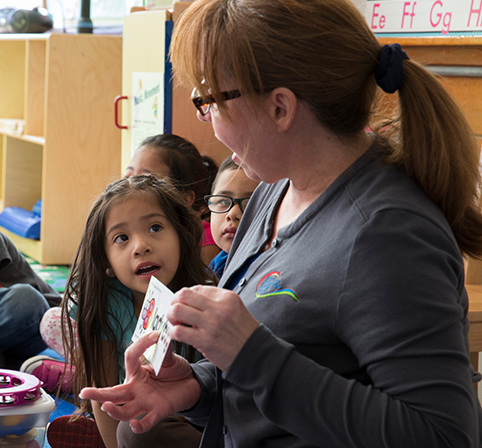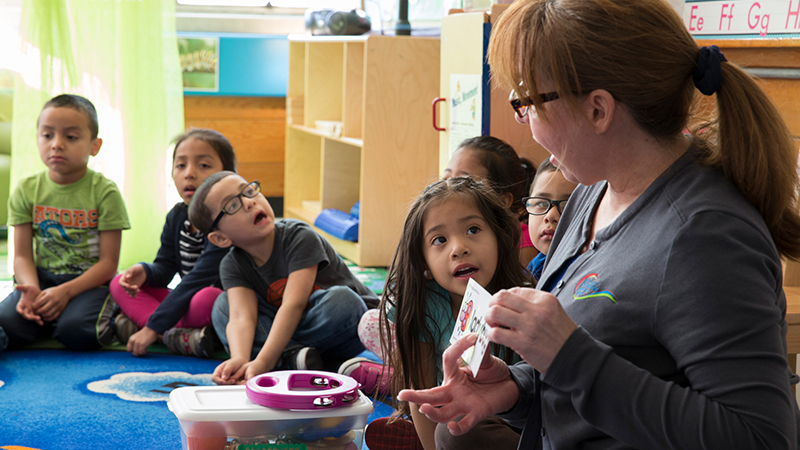

Department of Education awards $2.5M to Miami University to provide critical support for Ohio's K-12 English language learners
College of Education, Health and Society will improve English language instruction across Southwest Ohio
By James Loy, College of Education, Health and Society
The U.S. Department of Education has awarded $2.5 million to Miami University to support the Preparing English Learner Educational Allies (PELEA) program and improve English language instruction across southwest Ohio K-12 schools. The grant will equip educators, paraprofessionals, and preservice teachers with skills, strategies, and best practices to improve instruction for English language learning children.
In the last decade, the number of English language learning children across Ohio has doubled to nearly 60,000, according to PELEA research. Many of these students arrive unaccompanied, or alone, and may have suffered additional trauma from poverty, natural disasters, and political unrest. The PELEA team has found that many local schools lack the expertise and resources to work with this growing population of students.
“English language learning children have to adjust to a new culture and environment,” said Martha Castañeda, Miami University professor of teacher education and principal investigator of PELEA. “[They] have to simultaneously learn a new language and master content in that new language, and they may have experienced traumatic events during the time that their education was interrupted, or because they are away from their family.”
Castañeda said that since 2017, Cincinnati Public Schools saw the number of English language learning children increase by 86%, and of the 4,800 ELs now attending, over 850 are identified as Students with Limited or Interrupted Formal Education (SLIFE). Across Hamilton County, the number of unaccompanied minors is also up by 88%.
The grant will allow PELEA to continue to offer scholarships toward the Teaching English to Speakers of Other Languages (TESOL) endorsement, and support PELEA’s work with parents and families to promote literacy growth at home.
"The PELEA grant extends Miami's role in leading Ohio's efforts to strengthen and diversify the teacher education pipeline, and fill a critical shortage of teachers able to work with the growing number of students for whom English is not their first language,” said Jason Lane, dean of EHS.
PELEA will also focus on a variety of trauma-responsive strategies, which are especially vital for students who might come from war-torn areas and for unaccompanied minors who have been separated from their families.
“When students have faced that kind of trauma, the brain becomes altered,” said Robin Schell, PELEA project director and Miami visiting assistant professor of teacher education. “So we work on strategies that help teachers recognize the signs of this trauma, how it affects their learning, and how to create environments that make students feel more comfortable and more relaxed. So they can actually learn instead of being on alert all the time.”
According to Schell, supporting the increasing number of SLIFE students in Cincinnati Public Schools has been overwhelming. “They just don't have enough teachers who are qualified or certified to work with these students,” she said.
Alongside creating trauma-responsive learning environments, the PELEA project will also support significant efforts to expand and diversify the teacher pipeline at large to further support English language learning children who typically come from different cultural backgrounds.
“The PELEA project will follow a ‘Grow Your Own’ program model by supporting culturally and linguistically diverse educators, who are community insiders, to gain licensure and teach in their home communities,” Castañeda said. “When we prepare teachers within the community, we provide the ELs with professionals that know their lived reality, who better understand their experience, and have already made a commitment to live and work in that community.”
The project is the direct result of years of work from Castañeda and others from across EHS, which is dedicated to positively impacting schools and communities through innovative projects and partnerships.
